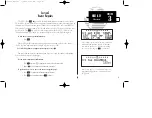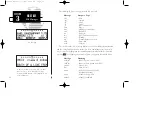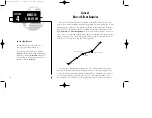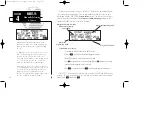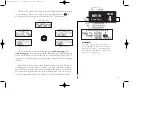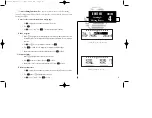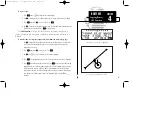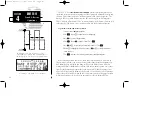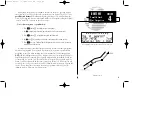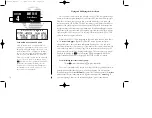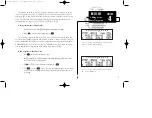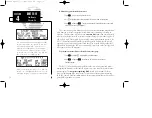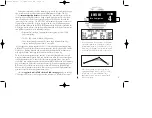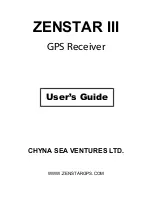
ROUTE NAV
Search & Rescue
Operations
SECTION
4
66
The GPS 155XL’s
search-and-rescue function
provides navigation guidance for
search-and-rescue operations, navigating in a ladder pattern to maximize coverage and
efficiency. This is done in reference to two waypoints called ‘anchor waypoints’. The
first leg will be a specified distance from the line connecting the anchor waypoints.
This is called the ‘offset distance’. The ‘increment distance’ is the distance between each
subsequent leg. The ladder can be created on either side of the anchor waypoints.
To perform a search-and-rescue operation:
1. Create a route of
only
two waypoints.
2. Press
R
and use
O
to display the route catalog page.
3. Use
K
to select the 2-waypoint route.
4. Press
C
and use
K
to display ‘search?’. Press
E
.
5. Use
K
and
O
to enter the leg increment value and R or L. Press
E
.
6. Rotate
O
to highlight the initial offset, and use
K
and
O
to enter the initial offset
value, and R or L.
7. Press
E
three times to accept the operation values and begin navigation.
After activating a search-and-rescue, you will be informed with an ‘Offset nav in
effect’ message each time you traverse the route offset from the anchor waypoints. The
NAV summary page will guide you along each leg of the ladder pattern. Note that
bearing and distance information are referenced to the anchor waypoints. Once you’ve
arrived at the destination waypoint, the leg increment will be added to your present
offset, and the route will be automatically reversed. If a search-and-rescue is interrupt-
ed, note the parallel track direction (R or L) and distance on the catalog page for route
0. When you resume search-and-rescue operations, use this as the initial offset.
Performing a search-and-rescue operation.
The map page will show the active leg of the
search and rescue pattern as a solid line with the
anchor waypoints joined together by a dashed line.
155xlb manual 1/12/99 4:06 PM Page 66


